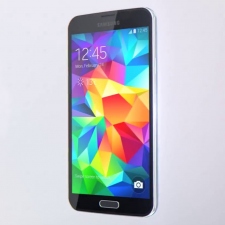Hot on the heels of news of a second decline in quarterly iPad sales, Korean giant Samsung (005930.KS) has revealed demand for its tablets is also on the wane.
In the firm's latest quarterly financials – which saw Samsung's IT & Mobile Communications division post revenue of 8.45 trillion won ($8.18 billion), leading to profits of 4.42 trillion won ($4.28 billion), down around 31 percent – the company claimed "pre-existing inventories in European markets" was making it harder to sell new models.
Seasonal shifts
"Market demand for IT & Mobile Communications products during the second quarter is traditionally low and this affected the division’s overall sales," Samsung said in a statement.
"The demand for smartphones remained the same as in the previous quarter and tablet demand slightly decreased."
As such, the company claimed it had "increased marketing expenditure" in an attempt to shift fresh and existing inventory, though Samsung expects market growth to "improve with stronger seasonal demand."
Samsung will focus on releasing new premium mobile devices.Samsung
"To meet this rise in demand, Samsung will focus on releasing new premium mobile devices, and a new flagship model in the large screen category, along with new mid-to-low-end models with more advanced features and competitive pricing," detailed the firm,
"Samsung will solidify its smartphone market leadership by further strengthening its product portfolio and leveraging its differentiated technologies and design."
Decoding Samsung's PR speak, that essentially means a new Galaxy S5 – rumoured to be dubbed 'Prime' - and a fresh Galaxy Note, though commentators are divided as to whether further high-end devices are the answer to a stall in smartphone growth.
High end hurdle
Indeed, Samsung's great rival Apple boasted about iPhone growth in BRIC (Brazil, Russia, India and China) nations in its most recent quarterly summary, with the 'budget' iPhone 5C reportedly the trigger.
Samsung's own hand in the budget market (aside from its low-end Android handset) was to be Tizen, the operating system rescued from the demise of Nokia and Intel's joint project MeeGo. However, earlier this week Samsung announced the indefinite delay of its first Tizen handset due to a lack of apps, with developers unwilling to support yet another app ecosystem.
It smacks of the problems Samsung encountered with its last OS, bada, which – despite being closely tied to Android – failed to amass developer support and stalled commercially as a result.
[source: Samsung]

















